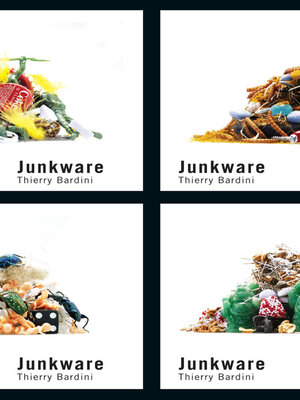
Sign up to save your library
With an OverDrive account, you can save your favorite libraries for at-a-glance information about availability. Find out more about OverDrive accounts.
Find this title in Libby, the library reading app by OverDrive.



Search for a digital library with this title
Title found at these libraries:
| Library Name | Distance |
|---|---|
| Loading... |
Are we made of junk? Thierry Bardini believes we are. Examining an array of cybernetic structures from genetic codes to communication networks, he explores the idea that most of culture and nature, including humans, is composed primarily of useless, but always potentially recyclable, material otherwise known as "junk."
Bardini unravels the presence of junk at the interface between science fictions and fictions of science, showing that molecular biology and popular culture since the early 1960s belong to the same culture-cyberculture-which is essentially a culture of junk. He draws on a wide variety of sources, including the writings of Philip K. Dick and William S. Burroughs, interviews with scientists as well as "crackpots," and work in genetics, cybernetics, and physics to support his contention that junk DNA represents a blind spot in our understanding of life.
At the same time, Junkware examines the cultural history that led to the encoding and decoding of life itself and the contemporary turning of these codes into a commodity. But he also contends that, beyond good and evil, the essential "junkiness" of this new subject is both the symptom and the potential cure.
Bardini unravels the presence of junk at the interface between science fictions and fictions of science, showing that molecular biology and popular culture since the early 1960s belong to the same culture-cyberculture-which is essentially a culture of junk. He draws on a wide variety of sources, including the writings of Philip K. Dick and William S. Burroughs, interviews with scientists as well as "crackpots," and work in genetics, cybernetics, and physics to support his contention that junk DNA represents a blind spot in our understanding of life.
At the same time, Junkware examines the cultural history that led to the encoding and decoding of life itself and the contemporary turning of these codes into a commodity. But he also contends that, beyond good and evil, the essential "junkiness" of this new subject is both the symptom and the potential cure.







